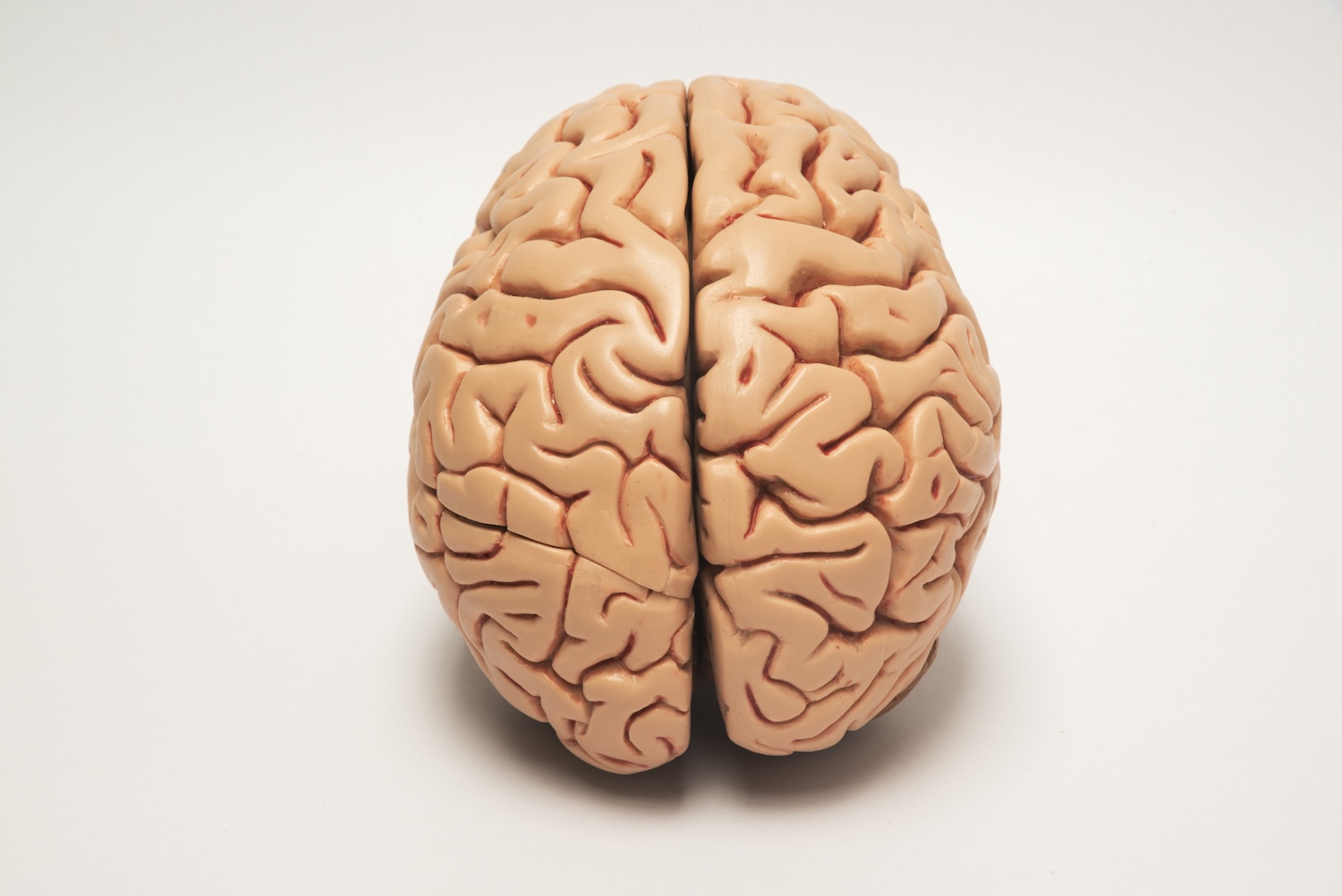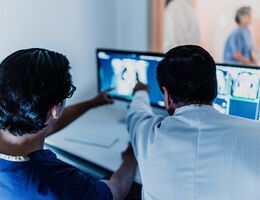What you should know about brain health, insights from a neurologist
Brain health, at its core, is anything that preserves or enhances the function of the brain.
As we age, it's natural for some brain cells to drop out, but poor health, chronic illnesses, and unhealthy lifestyle choices like high blood pressure, lack of exercise, poor diet, obesity, or unmanaged cholesterol can accelerate the pace of this decline.
However, Jeffrey Rosenfeld, PhD, MD, FAAN, professor of Neurology, director of the Center for Restorative Neurology, and Associate Chairman in the Department of Neurology at Loma Linda University Health, says maintaining brain health is not just about slowing cell loss. It’s also about how well those remaining cells are connected to each other, a concept known as synaptic plasticity, which is the brain's ability to form new connections and adapt over time.
“This plasticity means that even as some neurons die off, the brain can remain sharp by forging stronger or more efficient connections among the neurons that remain,” Rosenfeld said.
Activities that challenge the brain –– intellectual pursuits, social engagements, learning new skills, or traveling — can enhance this process. However, neurodegenerative diseases, brain injuries, and natural aging can all affect brain health, often raising serious concerns for individuals and their families.
Rosenfeld explains the key aspects of brain health and highlights what people should watch for when it comes to potential cognitive decline.
Maintaining a healthy brain
A healthy brain often comes down to common-sense habits, including overall health, lifestyle, stress management, and safety.
One of the most valuable things a person can do for their brain health is to take care of their entire body. This includes being aware of blood pressure, cholesterol, blood sugar, weight management, and stress management. Additionally, frequently engaging in novel and intellectual activities such as trying a new hobby, solving puzzles, or learning a new language helps keep the mind sharp.
It’s also important to protect the brain from potential physical injuries when engaging in high-risk activities like biking, construction work, or contact sports.
However, if an injury does happen, the brain has a remarkable capacity to compensate for damage.
“After injuries like strokes, or surgeries where parts of the brain are removed, the remaining brain tissue often finds ways to adapt,” Rosenfeld said. "This is particularly evident in children, whose brains exhibit more remarkable plasticity.”
Despite the brain’s drive for repair and desire to be healthy, Rosenfeld acknowledges that neurodegenerative diseases can outpace the brain’s ability to compensate. These include:
-
Alzheimer’s Disease
-
Parkinson’s Disease
-
Amyotrophic Lateral Sclerosis (ALS)
-
Huntington’s Disease
-
Frontotemporal Dementia
-
Lewy Body Dementia
-
Multiple System Atrophy
-
Vascular Dementia
“In early stages of neurodegenerative disease, we often see signs that the brain is trying to fight back,” Rosenfeld said. This reinforces how critical it is to support brain health through lifestyle choices.
When to seek a brain health evaluation
Casual memory lapses, like forgetting a word or a detail, are likely not a cause for concern if it doesn’t happen often or is not especially progressive.
“Everyone occasionally forgets a name or misplaces something,” Rosenfeld explains.
“This may show up under stress, fatigue, or distraction and often does not cause alarm.”
On the other hand, consistent inability to recognize familiar colors, recall common items, or forgetfulness that impacts daily functioning are key indicators that suggest a more serious cognitive issue. If the problem happens repeatedly, interferes with your ability to manage daily tasks, or seems to be getting worse, that’s when it may be time to seek a cognitive evaluation.
“People often start to worry when they can’t remember where they placed their keys, struggle to recall names, or find it harder to express themselves with words,” Rosenfeld said. “These small but disruptive changes often serve as early indicators that something isn’t quite right.”
Most of the time, individuals are aware enough to notice changes and seek help themselves, especially when physical, cognitive, or emotional functions are affected. However, Rosenfeld warns that if someone lives in isolation, leads a sedentary lifestyle, and avoids intellectual activity, they may not immediately realize that something is off.
The key takeaway is this: we often do know when our brain isn’t functioning as it should and that awareness is the first sign it’s time to seek help.
What to do if neurodegenerative diseases run in the family
For those concerned about a family history of Alzheimer's, dementia, or other neurodegenerative diseases, there is always an option to get genetic testing. However, the decision to conduct this testing is deeply personal and often emotional.
Many people feel hesitant to find out if they carry a genetic marker for something like Alzheimer’s or another form of dementia, especially if they’ve seen a loved one suffer from it.
“One common concern is the psychological burden of knowing,” Rosenfeld said.
“If a family member learns they’re at higher risk, but there’s no clear treatment or prevention strategy available, it can create anxiety and a sense of helplessness rather than clarity.”
That said, genetic information can sometimes have practical value. For instance, if someone has a rare amyloid gene mutation and there is a clinical trial available for pre-symptomatic treatment, then knowing could lead to proactive care. For inherited diseases that affect family planning, genetic testing can help individuals make informed choices.
Ultimately, the question of whether to get genetic testing comes down to weighing the risks and benefits. Before undergoing testing, individuals are encouraged to think about what they would do with the information, whether it would change their decisions, their health care planning, or simply if it would cause unnecessary worry.
The future of brain health
Recent advances in neuroscience and neurology are paving the way for promising new approaches to understanding and treating neurodegenerative diseases. What’s particularly exciting is the realization that, despite the diversity of neurodegenerative diseases, many share common pathophysiological mechanisms. What this means is that instead of tackling each disease in isolation, scientists can now focus on shared mechanisms that could potentially lead to treatments that benefit multiple conditions at once.

For example, Rosenfeld shares that disease mechanisms relevant in the study of ALS can also lead to better understanding of Huntington’s Disease or Parkinson’s Disease. Likewise, new treatments targeting those shared mechanisms can have broader implications for multiple diseases. While the symptoms of each condition vary, their impact on a person’s life, especially their relationships and independence, is profound.
“Looking ahead, there is real hope,” Rosenfeld says.
“While we still don’t have all the answers, the number of active clinical trials and research projects is encouraging.” The potential of identifying shared mechanisms contributes to the hope that multiple advances in treating different neurodegenerative diseases may occur simultaneously.
Your brain and its long-term health
Though the possibility of developing a neurodegenerative disease is a scary thought to consider, Rosenfeld says it’s important to remember that the brain wants to be healthy.
“The brain doesn't want to fail,” he reminds us. “It’s constantly adapting, striving, and healing.”
Caring for the brain through a healthy lifestyle, mental stimulation, and avoiding high-risk activities is well within our control. With exciting breakthroughs in treating neurodegenerative diseases, there is growing reason to be hopeful about the future of brain health.
Need to see a provider in person but not sure where to go? Here is your guide to help you quickly find which service is right for your situation: Know Where to Go.



